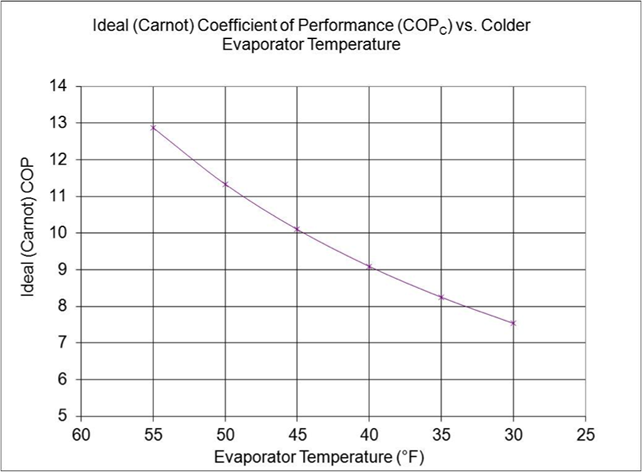Energy Consumption in Zoned Systems
|
||||
The primary purpose of zoning ducted air conditioners, heat pumps, |
||||
Increased comfort is attained by having the capacity of the HVAC system (cooling or heating delivered) follow the shift in load as it changes across the house. For example, it is common for two-story homes to be too hot on the second floor in both summer and winter. Providing the most agreeable temperature to all the zones is comfortable, but it carries with it the distinct possibility of increased energy consumption. There are two primary methods by which the common multi-zoned dampered system lowers the capacity and efficiency of an air conditioner. These are: |
|
||||
Both of these items lower the evaporator coil temperature, which lowers the capacity and efficiency of the unit. The reverse Carnot cycle establishes a theoretical Coefficient of Performance (COPC) of a vapor compression air conditioner. The Carnot cycle is a clearly unattainable ideal, but it make two things perfectly clear:
Figure 12 graphs the COPC of a unit with a condenser temperature of 95°F and varying evaporator temperatures. EER = COP * 3.414 |
|||||


